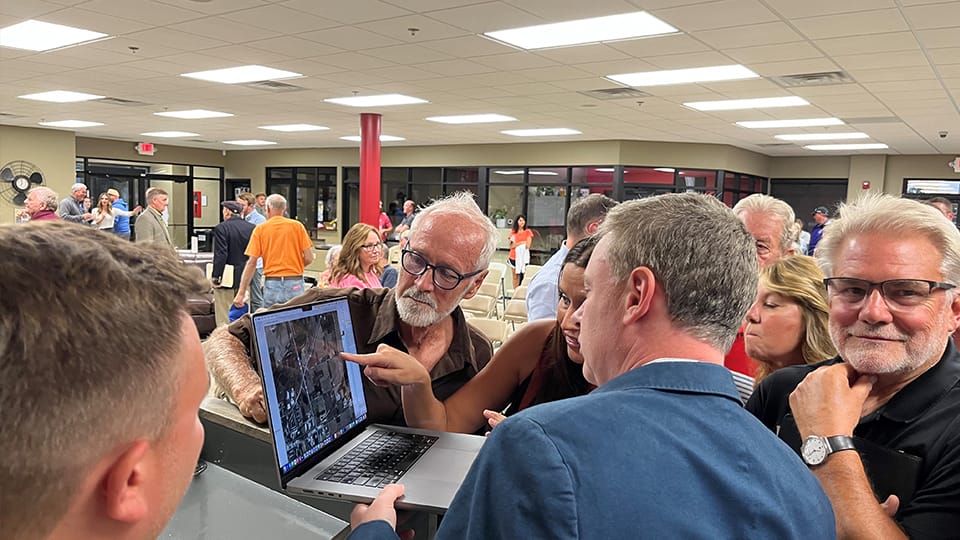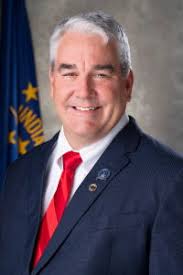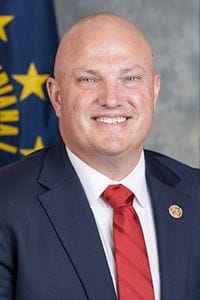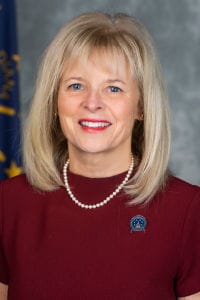Lawmakers give diverging views on New Haven casino. Will it be brought up in 2025?
Subscriber Benefit
As a subscriber you can listen to articles at work, in the car, or while you work out. Subscribe Now
As the 2025 legislative session comes into view in the coming weeks, legislators in and around Allen County are going public with their views on the idea of a new casino in New Haven.
State Senator Andy Zay, R-Huntington, tells Inside INdiana Business he’s planning to author the legislation that would allow Full House Resorts to move its gaming license from Rising Sun to New Haven, where the Las Vegas-based company wants to build a $500 million casino and hotel.
But some of Zay’s senate colleagues who represent areas around the proposed site of the casino are opposed to the idea, saying they don’t see the project as the economic panacea Full House portrays it as.
Trusting in New Haven
As he prepares to put together the bill, Zay said he “can’t deny” the tax revenue a major casino in Indiana’s third largest county would bring in. A study commissioned by Full House claims about $53 million would go to the state per year once Phase 1 of the build is completed—compared to the $3.7 million Full House paid last year for its property in Rising Sun.
But Zay said his support for the project is guided by his trust in New Haven Mayor Steve McMichael. To Zay, the town of New Haven is where the buck ultimately stops, so the town’s elected leaders should have a big say.
“For my style of legislating, I’m going to support the locals every day of the week,” Zay said. “It’s not something Mayor McMichael has stepped into lightly. It’s something he’s taken the time, researched and followed through. I’m happy to support Steve. I think it’s a great opportunity, a great investment for northeast Indiana.”

Zay noted casino projects in the state, including the proposal from Full House, don’t ask for any tax abatements or TIF incentives like most other major developments do.
‘A grain of salt’
However other senators in northeast Indiana don’t share Zay’s viewpoint.
At a town hall-style meeting before Thanksgiving, senators Tyler Johnson, R-New Haven, and Liz Brown, R-Fort Wayne, expressed their opposition to a casino coming to New Haven. Both senators reiterated that stance in interviews this week with IIB.
Johnson represents the communities around State Road 30 and Interstate 469 where Full House plans to build its casino. He said he has multiple immediate family members who live within a few miles of the proposed site and believes a casino will bring social issues in its wake.

“I don’t have a short-term outlook on this. I have a long-term outlook on my community and I want to weigh the risks and benefits quite a bit. There’s definitely some social impact that can’t be ignored from traffic patterns all the way down to addiction,” Johnson said. “There’s a lot of concerns I’ve waded through over the past few months.”
Johnson added he takes Full House’s tax projections “with a grain of salt.”
Liz Brown also called Full House’s revenue and tax projections “hyperbolic.” In her view, the legislature needs to have a larger conversation about its goals as it pertains to gaming revenue before addressing licenses.
“Before we do anything we have to have a deep dive. I do not think a casino is the economic development solution to northeast Indiana,” said Brown.

Full House’s study projects around 2,400 permanent jobs in Phase 1 of the casino, but both Brown and Johnson feel the vast majority of those jobs won’t pay enough to attract residents from outside Allen County to move there.
Legislative hurdles
To gaming industry observers, there are multiple questions and possibilities that go beyond what senators in the casino’s path think.
The biggest is whether the legislature will even touch gaming in the 2025 session. Indiana Gaming Insight Editor Ed Feigenbaum said incoming Gov. Mike Braun hasn’t given much of an indication one way or another on his leanings. But, he said, lawmakers still might be skittish about the topic given the possibility of more criminal charges related to the most recent casino license transfer.
Working against that trepidation, however, is the fact Indiana has a revenue shortfall.
If Zay, or another lawmaker, does get a bill onto the floor, Feigenbaum cautioned it likely won’t be a nice, tidy transfer from Rising Sun to New Haven. Lawmakers will likely try to attach various gaming-related amendments—like electric pull tab gaming and possibly relocating other casinos in northwest Indiana—to any bill, turning the process into an omnibus situation.
“We’ve seen with gaming legislation, you generally do not get, in the end, what you proposed in the beginning,” said Feigenbaum. “There’s an awful lot of give and take.”
If lawmakers are open to putting a casino in New Haven, Feigenbaum added there could be an appetite from lawmakers to open the license up for bids as opposed to automatically giving it to Full House.
